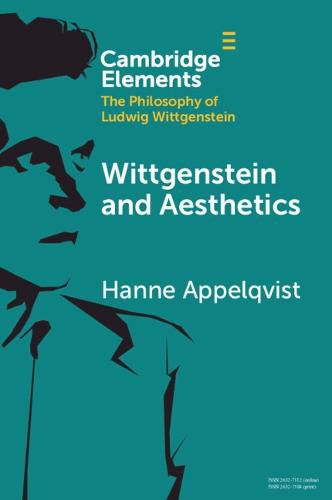Readings Newsletter
Become a Readings Member to make your shopping experience even easier.
Sign in or sign up for free!
You’re not far away from qualifying for FREE standard shipping within Australia
You’ve qualified for FREE standard shipping within Australia
The cart is loading…






This Element argues that aesthetics broadly conceived plays a significant role in Wittgenstein's philosophy. In doing so, it draws on the interpretative tradition that emphasizes affinities between Wittgenstein's thought and Kant's philosophy. Following the chronology of Wittgenstein's philosophical work, this Element addresses Wittgenstein's early equation between ethics and aesthetics, his middle-period discussion on the normative character of aesthetic judgments and the possibility of their justification, and his later comparison between language and music. As a whole, it traces a continuous line of thought pertaining to a non-conceptual form of encounter with reality, which is developed in close conjunction with aesthetics and contributes to Wittgenstein's understanding of language and the method of philosophy throughout his career. This title is also available as open access on Cambridge Core.
$9.00 standard shipping within Australia
FREE standard shipping within Australia for orders over $100.00
Express & International shipping calculated at checkout
This Element argues that aesthetics broadly conceived plays a significant role in Wittgenstein's philosophy. In doing so, it draws on the interpretative tradition that emphasizes affinities between Wittgenstein's thought and Kant's philosophy. Following the chronology of Wittgenstein's philosophical work, this Element addresses Wittgenstein's early equation between ethics and aesthetics, his middle-period discussion on the normative character of aesthetic judgments and the possibility of their justification, and his later comparison between language and music. As a whole, it traces a continuous line of thought pertaining to a non-conceptual form of encounter with reality, which is developed in close conjunction with aesthetics and contributes to Wittgenstein's understanding of language and the method of philosophy throughout his career. This title is also available as open access on Cambridge Core.